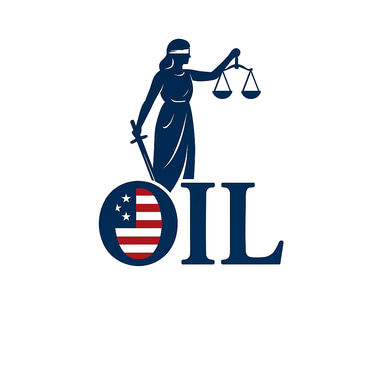Why Global Healthcare Talent Still Belongs in America
Novie Onor, Esq, RN
10/15/20254 min read


🇺🇸 America in Interesting Times — Why Global Talent Still Belongs Here
America is, once again, in interesting times.
Politics is divided. Public trust feels fragile.
And yet—airports are full. Planes are packed with professionals, families, and dreamers clutching visas, certifications, and the quiet hope that life can still be better on the other side of the Pacific.
As a U.S. immigration attorney, I ask myself more often than you’d think:
Does it still make sense to help people move to America?
When I was a young graduate nurse in Davao, “going to America” wasn’t my personal dream; it was everyone’s. It was what we were taught to want. From the way we spoke English to the movies we watched, America was in our airwaves, our classrooms, even our sense of humor. It wasn’t just a country; it was an imprint.
But after studying, living, traveling, and working across continents—from Australia to Europe, the Middle East to Southeast Asia—I’ve come to see the world with both affection and precision. Every country has its promise, but also its price.
Europe? Elegant, but encumbered by bureaucracy and language barriers.
Canada? Compassionate, but cold—in climate and sometimes in opportunity.
Australia? Stable and prosperous, but a smaller market for ambition.
The Middle East? Thriving, but often temporary for long-term migrants.
Southeast Asia? Warm, dynamic, entrepreneurial—but often held back by corruption, inequality, and systemic inefficiency.
And so, after all that movement, I’ve come full circle. Because despite its contradictions and imperfections—America still offers something rare: room to build.
🏥 The Global Healthcare Lifeline
America’s healthcare system depends on migrants. According to the American Immigration Council (2023), nearly one in six U.S. healthcare workers is foreign-born—about 2.8 million professionals in total. These include:
15% of all registered nurses
22% of nursing assistants, and
nearly 30% of home health aides
These are people who leave families behind, take licensure exams across continents, and adapt to new cultures—just to care for strangers with dignity.
And America needs them. The U.S. Bureau of Labor Statistics (2024) projects more than 189,000 RN openings each year through 2032, driven by aging populations and burnout. Without international nurses—many from Southeast Asia—the system simply wouldn’t cope.
The truth? American healthcare is built, in part, on Filipino resilience, Indian excellence, and global dedication. It’s a living example of what migration makes possible.
🏢 The Business of Migration
Migration isn’t charity. It’s strategy. For U.S. employers, hiring globally isn’t about filling gaps. It’s about fueling growth.
Immigrants make up 18% of the total U.S. labor force, and over 25% in industries like healthcare, tech, and manufacturing.
Continued immigration is projected to add $7 trillion to GDP and $1 trillion in federal revenue over the next decade (Congressional Budget Office & FWD.us, 2024).
A 2024 Deloitte survey found that 62% of U.S. companies plan to expand cross-border recruitment to address chronic labor shortages. domestic talent supply tightens, global recruitment becomes the lifeline.
That’s why immigration isn’t just about compliance. It’s also about competitiveness.
The smartest companies aren’t asking if they should hire abroad. They’re asking how fast can we integrate global talent into our workforce?
🌍 The Southeast Asian Reality
For many Southeast Asians, migration isn’t a luxury—it’s a strategy for survival and mobility.
Talent is abundant, but systems can be suffocating.
Bureaucracy, political patronage, and corruption quietly strangle potential.
Brilliant nurses, engineers, and accountants end up waiting months for simple approvals or stuck under wage systems that don’t reward merit.
That’s why migration remains a tool of empowerment—a way to turn potential into progress.
When Southeast Asian professionals move to the U.S., they don’t just find better pay; they find systems that, for all their flaws, still reward effort and integrity.
💡 What Experience Teaches You
After working in hospitals, courtrooms, and boardrooms across continents, I’ve learned this:
Perfection is overrated. Functionality is underrated.
Reinvention is possible here. In the U.S., your first chapter doesn’t define your last.
Effort still counts. It’s not a perfect meritocracy, but it’s closer than most places.
Institutions, though noisy, still work. Contracts are enforced. Courts exist. Transparency is expected.
And that makes all the difference for those who come to build—not just belong.
✈️ Why It Still Makes Sense
If you’re a healthcare professional dreaming of the U.S.—or a U.S. business struggling to find talent—the math still works. Despite political division and policy drama, the fundamentals haven’t changed:
The U.S. still rewards skill, hard work, and persistence.
Global migration still powers the economy.
Opportunity still outweighs imperfection.
So yes, America is messy. But so is progress.
And for those willing to do the work—migrants, employers, and entrepreneurs alike—it remains one of the most rewarding markets in the world.
🧭 Final Thoughts
Every region demands something.
Europe demands fluency.
Australia demands conformity.
The Middle East demands resilience.
Southeast Asia demands patience, and sometimes silence.
But America? It demands belief and rewards those who back it with effort.
So in these “interesting times,” here’s what I know:
For healthcare workers, global professionals, and visionary businesses—America is still worth betting on.
Not because it’s flawless, but because it’s forgiving.
Not because it’s easy, but because it’s possible.
At ONOR Immigration Law, we help individuals and businesses turn that possibility into a plan.
Whether you’re a nurse crossing borders or a U.S. employer ready to build a stronger, more diverse team—we make the process strategic, compliant, and human.
Because migration shouldn’t feel like a maze. It should feel like momentum.
And in a world where so many doors are closing, America is still one worth walking through—
if you have the right guide beside you.
📚 Sources
U.S. Census Bureau (2023). Population Estimates: International Migration.
U.S. Bureau of Labor Statistics (2024). Employment Projections for Registered Nurses.
American Immigration Council (2023). Immigrants in Healthcare.
Congressional Budget Office & FWD.us (2024). Economic Impact of Immigration.
Deloitte Global Workforce Survey (2024). Cross-Border Talent Strategies.
Contact
Address: 418 Broadway #7416, Albany, NY 12207, United States of America
Email: novie@onorimmigrationlaw.com
We prefer e-mail correspondence for ease and convenience. We respond within 1-2 days. Immigration timelines can be stressful, and you deserve answers without delay.
Take the next step today. Contact us to schedule your consultation.
© 2025. All rights reserved.
Attorney Advertising. This website is for informational purposes only and does not constitute legal advice. Past results do not guarantee a similar outcome.
No attorney–client relationship is created by visiting this site, contacting ONOR Immigration Law, or receiving information here. An attorney–client relationship is established only after a signed retainer agreement with ONOR Immigration Law PLLC.
ONOR Immigration Law practices exclusively U.S. immigration law. We do not provide legal advice on Australian or other non-U.S. laws. Where appropriate, we may refer clients to independent professionals in those jurisdictions.
